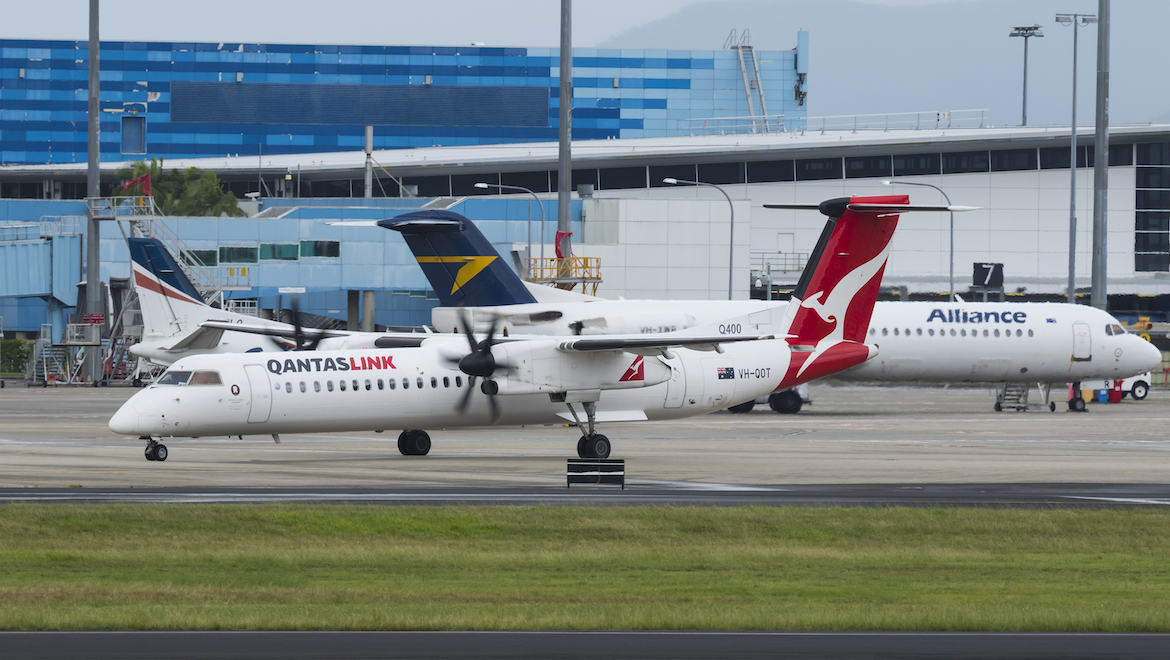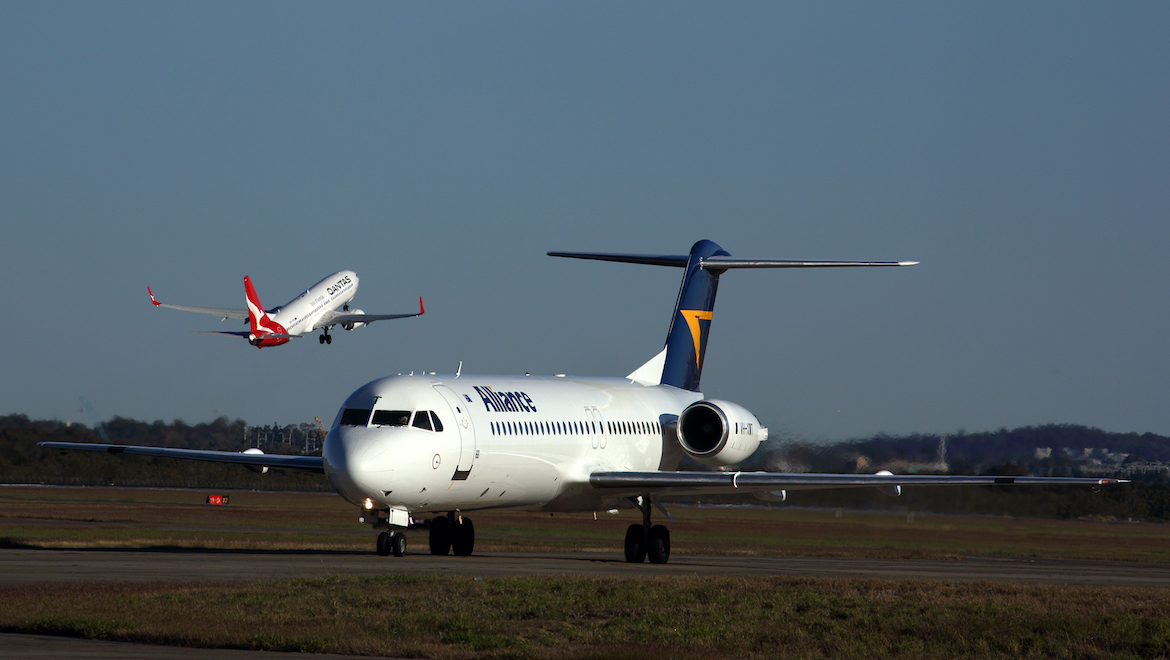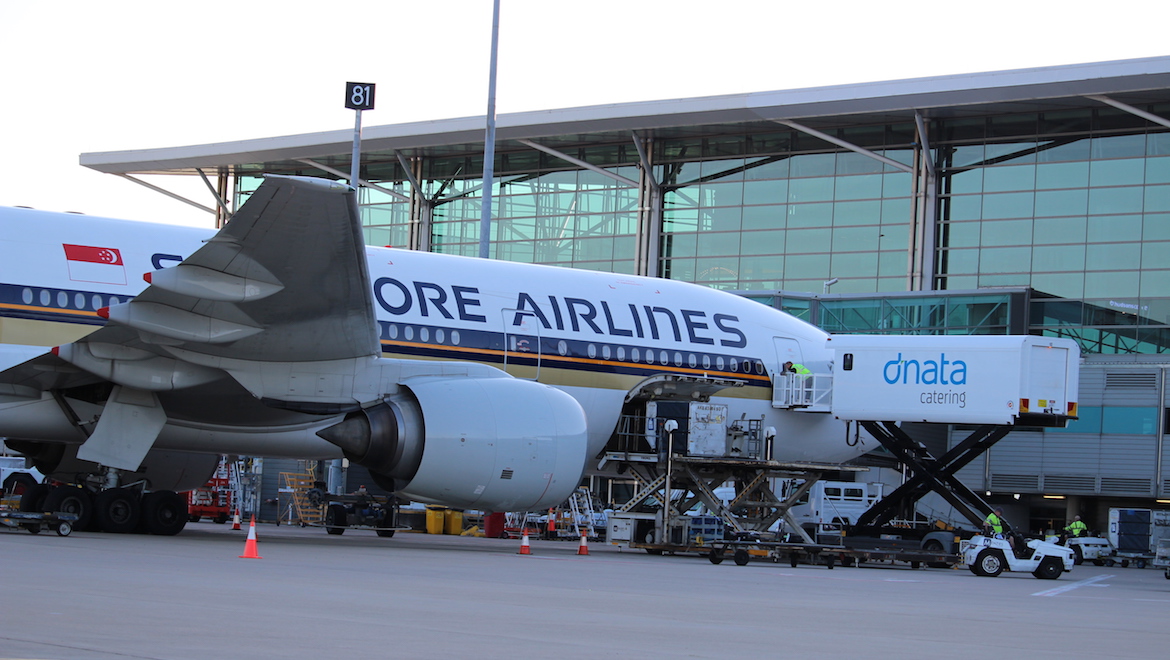
Australia’s competition watchdog says the Qantas shareholding in Alliance Airlines is likely to substantially lessen competition in the charter and fly-in/fly-out (FIFO) market, as well as on a number of regular public transport (RPT) routes.
The Australian Competition and Consumer Commission (ACCC) has been reviewing Qantas’s 19.9 per cent stake in Alliance Airlines purchased in February.
In a statement of issues published on Thursday, the ACCC said it was concerned the shareholding was “likely to hinder competition between Qantas and Alliance Airlines, either now or in the medium to longer term, and lessen the future competitive position of Alliance Airlines more generally”.
“The ACCC is concerned that the acquisition has, or is likely to have, the effect of substantially lessening competition in markets for the supply of fly-in fly-out (FIFO) charter airline services, and regular passenger transport (RPT) services on routes serviced by Alliance Airlines aircraft,” the ACCC said.
“Alliance Airlines is often Qantas’ only or closest competitor (or an integral input to Virgin where Virgin is Qantas’ only or closest competitor) for these services.”
ACCC chairman Rod Sims said Alliance Airlines was a “close, important and growing competitor to Qantas”.
“It provides consumers and companies with a crucial alternative to Qantas in markets that are already highly concentrated,” Sims said in a statement.
“We consider this shareholding has the potential to impact Alliance’s future growth and its ability to be a strong competitor.
“It may impact Alliance’s ability to grow through raising funds from investors, or to consider rival takeover approaches.
“It may also impact whether Alliance’s customers perceive it to be an independent rival to Qantas.”
Further, Sims said “any move by one company to acquire and build on a significant stake in a close competitor is likely to raise competition issues”, given the potential for the two businesses to compete less vigorously or to influence each others’ strategies or outcomes.
In addition to its own operations, Alliance Airlines also cooperates with Virgin Australia in the charter and FIFO market after receiving ACCC approval for their partnership in 2017. That authorisation is valid until June 2022. Alliance Airlines also operates some RPT routes on behalf of Virgin Australia.
In response to the ACCC’s statement of issues, Qantas said in a regulatory filing to the Australian Securities Exchange (ASX) on Thursday it was continuing to cooperate with the investigation.
Further, the airline group reiterated it had been a passive investor in Alliance and had not sought management control or a seat on the board.
“We do not believe there is any evidence of a lessening of competition as a result of our minority stake, nor any reasonable prospect that there will be,” Qantas said.
“To the contrary, Alliance Aviation has extended the services it offers to the market in recent months.
“Qantas has been completely transparent in its goal to ultimately seek ACCC permission to take a majority stake in Alliance, but acknowledges the regulatory challenges this poses. Our current stake is not contingent on reaching a majority position.”
Qantas group chief executive Alan Joyce said recently having Alliance and its Network Aviation subsidiary work together would yield benefits to customers in the charter and fly-in/fly-out market.
“We see the resources sector booming, we see Alliance highly exposed to that,” Joyce told reporters on the sidelines of the International Air Transport Association (IATA) annual general meeting in Seoul on June 3.
“We think there is a lot of synergies with a business we have called Network Aviation, which flies the same F100 aircraft. We think it adds scale benefits that will be passed on to the customers, the big mining resources.”
The ACCC said was continuing to look into the matter with submissions from interested parties due by August 21 2019. It said Qantas would not increase its shareholding until its investigation was completed.
Alliance Airlines said little in a regulatory filing to the ASX, simply noting the ACCC’s statement and Qantas’s undertaking not to add to its 19.9 per cent stake.
The company was due to publish its 2018/19 full year results next week.
“Alliance is being advised by Catapult Partners as financial adviser and Herbert Smith Freehills as legal adviser,” the ASX statement said.
The full statement of issues can be read on the ACCC website.
At lunchtime on the ASX, Qantas shares were up about 0.2 per cent at $5.725, while Alliance Airlines shares had fallen about 2.5 per cent to $2.80.













KIm
says:Well maybe they may sell down Alliance altogether and buy out Cobham since they are heverly in bed together already
Craigy
says:Another airline possibly on the market is Air North. That would sit nicely in the Qantas Group portfolio
Mac Carter
says:Should Air North be offered for sale by it’s financially troubled owner, a merger with Alliance would be beneficial to both parties, enable Alliance to expose itself to more modern aircraft, and hopefully a more secure financial situation.
Whatever the future, regional Australia must have competitive and affordable air services.